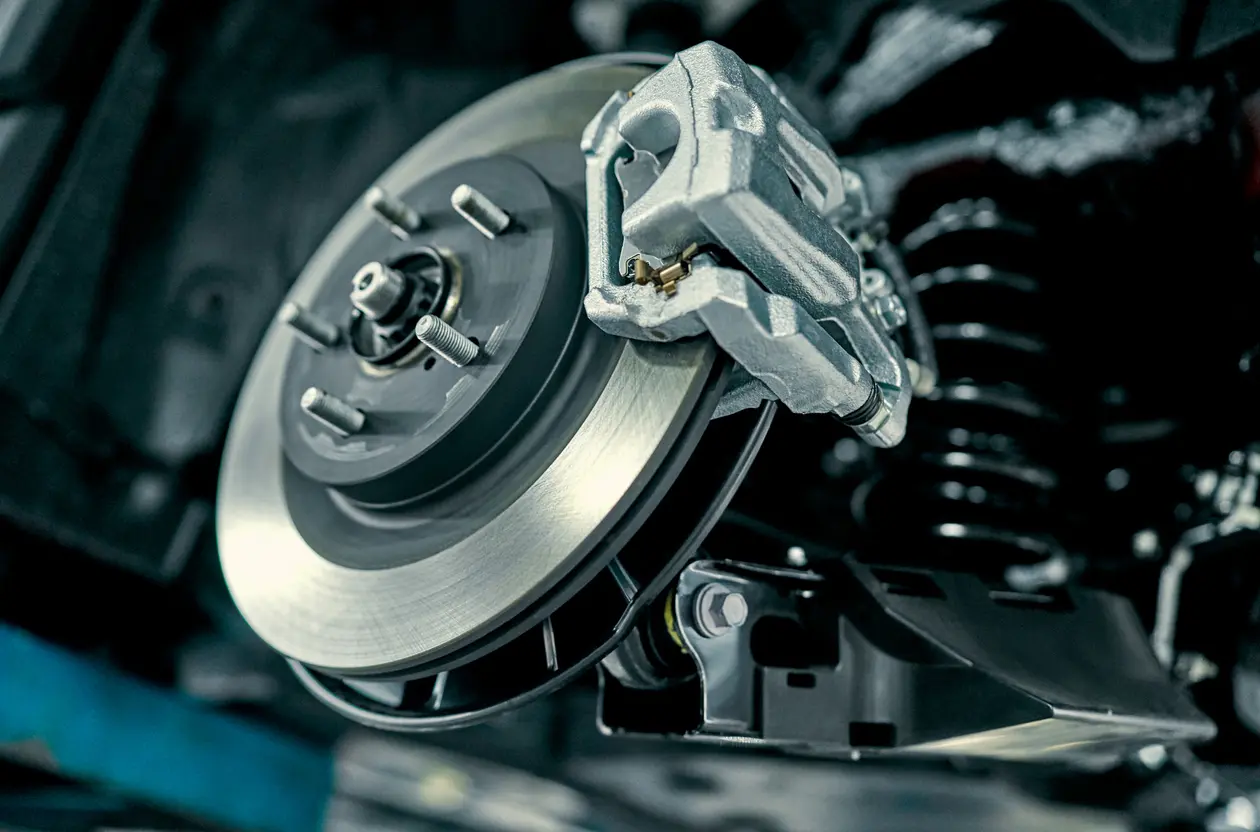EN 16207 Brake Pad Durability Testing
The EN 16207 standard is a critical requirement in the railway and transportation industry, ensuring brake systems meet the highest levels of safety and reliability. This test evaluates the durability of brake pads under simulated real-world conditions to ensure they perform optimally over their intended lifespan.
Brake pad durability testing is essential for several reasons. Firstly, it ensures that brakes can withstand frequent use without degradation, which is crucial in high-demand environments such as heavy rail vehicles and urban transit systems. Secondly, the test helps manufacturers identify potential weaknesses in brake pad design or material composition before they reach the market.
During testing, brake pads are subjected to a series of cycles that mimic the operational conditions they will experience during service life. These include temperature variations, load application, and frictional interactions with brake discs. The goal is to assess not only the pad's performance but also its resistance to wear, heat generation, and potential failure.
Testing can be conducted in controlled laboratory environments or on-road simulation systems, depending on the specific requirements of the project. In both cases, precise monitoring equipment measures key parameters such as temperature rise, pressure distribution, and friction coefficient changes over time. This data is then used to evaluate compliance with EN 16207 standards.
Compliance with this standard ensures that brake systems meet the stringent requirements set by international authorities like the European Railway Agency (ERA). It also helps manufacturers maintain their reputation for quality and reliability, which is vital given the critical role brakes play in ensuring passenger safety. Compliance can lead to increased market confidence, reduced liability risks, and enhanced brand value.
| Parameter | Description |
|---|---|
| Temperature Rise (°C) | The increase in temperature at the brake pad surface during testing. |
| Pressure Distribution | Distribution of pressure applied by the brake pad on the disc. |
| Friction Coefficient Changes | Variations in friction performance over multiple cycles. |
Scope and Methodology
The scope of EN 16207 covers the durability testing of brake pads used in railway and transportation systems. This includes evaluating the pad's ability to withstand repeated cycles of braking, ensuring it maintains its performance over extended periods without significant wear or degradation.
Testing typically involves subjecting brake pads to a series of prescribed cycles that simulate real-world operating conditions. These cycles may include varying loads, temperatures, and friction levels to assess the pad's resilience under different stress scenarios. The methodology aims to replicate the most challenging conditions that brake pads might encounter during service life.
The testing process begins with rigorous preparation of the brake pads according to specified standards. This includes cleaning, conditioning, and ensuring consistency in material composition. Once prepared, the pads undergo a series of cyclic loading tests where they are repeatedly subjected to braking forces while maintaining specific temperature profiles.
Data collection is a critical component of the testing process. Sensors embedded within the test rig continuously monitor various parameters such as temperature rise at the pad surface, pressure distribution across the disc interface, and friction coefficient variations throughout each cycle. This data provides valuable insights into how well the brake pads perform under simulated real-world conditions.
After completing the prescribed number of cycles, the tested brake pads are inspected for any signs of wear or damage. Any deviations from expected performance metrics are documented and analyzed to determine their impact on overall durability. Compliance with EN 16207 requires that all key parameters fall within specified tolerance limits throughout the testing period.
- Load application cycles
- Temperature control during testing
- Data logging and analysis
- Visual inspection of brake pads post-testing
Eurolab Advantages
At Eurolab, we pride ourselves on offering comprehensive testing services that go beyond compliance with international standards. Our team of experienced engineers and technicians is dedicated to providing precise, reliable results tailored specifically for your needs.
We offer a range of additional value-added services designed to support your product development and quality assurance processes. These include detailed reports that provide in-depth analysis of test results, technical consultancy on material selection and design optimization, and assistance with interpretation of standards like EN 16207.
Our state-of-the-art facilities ensure consistent and accurate testing across all services we offer. We employ advanced instrumentation capable of measuring even the smallest variations in performance parameters, allowing us to detect potential issues early on. This not only enhances product quality but also reduces costs associated with rework or recalls later down the line.
Our commitment to excellence is further reflected in our ISO 17025 accreditation, which guarantees that all our testing procedures meet the highest industry standards for accuracy and reliability. By choosing Eurolab as your partner for brake pad durability testing, you can rest assured knowing that every aspect of your project receives the attention it deserves.
With a focus on innovation and customer satisfaction, Eurolab continues to push boundaries in materials science research, ensuring that our clients stay ahead of competitors by delivering superior products backed by robust evidence.
Use Cases and Application Examples
- Incorporating into R&D processes for new product development
- Ensuring compliance with international standards before market release
- Identifying areas of improvement in existing products through performance analysis
- Supporting procurement decisions by evaluating supplier capabilities and consistency
| Test Cycle Type | Number of Cycles | Temperature Range (°C) | Load Application (kN) |
|---|---|---|---|
| Standard Cycle 1 | 500 cycles | 200–400°C | 3.5 kN |
| Standard Cycle 2 | 1000 cycles | 300–600°C | 4.0 kN |





